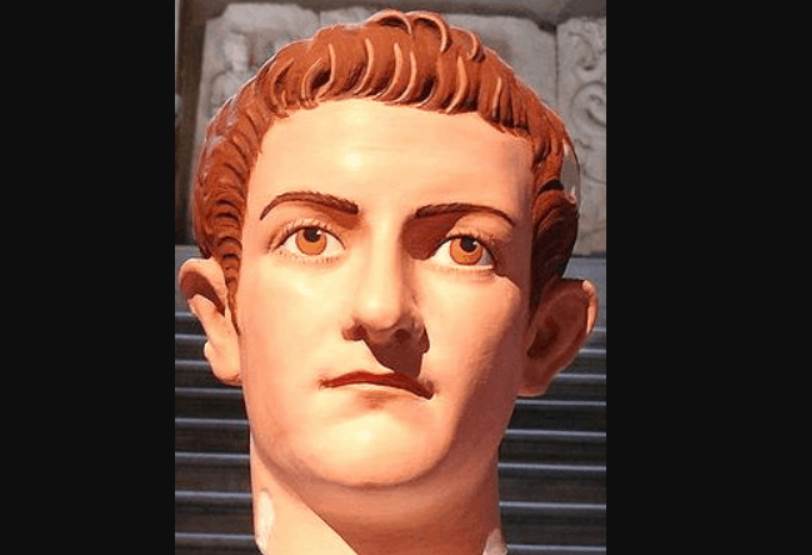His real name was “Gaius Julius Caesar,” and in this post, we’ll take a closer look at the top 14 facts about Caligula, one of the cruelest Roman Emperors to rule the Empire.
1. He was the great-grandson of Augustus
It’s fair to say that Caligula was born into a prestigious family of the Ancient Roman Empire. In fact, he was born into the Julio-Claudian Dynasty as his great-grandfather was nobody less than the first emperor of Rome, Augustus. This dynasty would end with Emperor Nero in the year 68 A.D.
His mother was Augustus’ granddaughter, Agrippina the Elder, and his father was a very popular Roman general named Germanicus. As you might have suspected, his father was named after the region he has lead various campaigns in, Germania.
He was born on August 31 of the year 12 A.D. in a town that was called “Antium,” modern-day Anzio in the Italian province of Lazio, about 51 kilometers (32 miles) south of Rome.
2. Caligula was his nickname as a boy
Gaius Julius Caesar had the same name as his famous family member known best as just “Julius Caesar.” Caligula was a nickname he had acquired when the little boy traveled with his father during his numerous campaigns.
Apparently, the soldiers had him dressed up in a small soldier’s uniform and even had him wear boots. These boots are called “caligae.” After this, the soldiers started referring to him as “Caligula,” which translates to “little soldier’s boot,” a nickname that stuck.
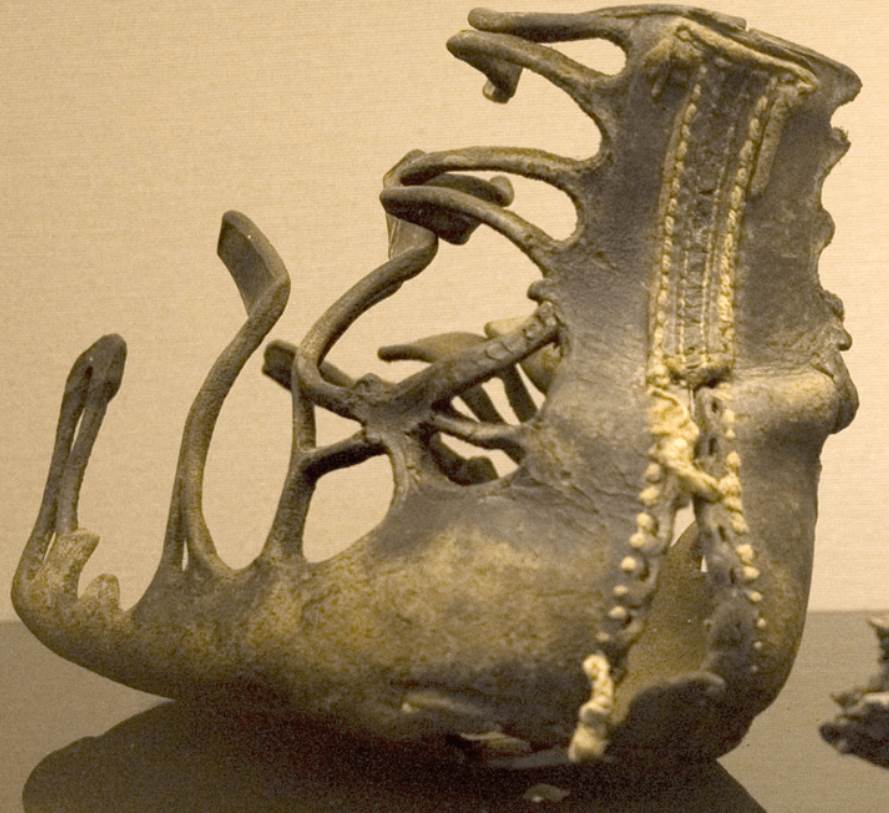
3. His early life was filled with cruelty
Being an emperor in Ancient Rome wasn’t an easy job, and being born into the family of the emperor was equally dangerous. Caligula lost his father at the young age of 7 and it’s believed that he was poisoned by Augustus’ stepson Tiberius in an attempt to seize power.
The following atrocity was the banishment of his mother and older brothers by Tiberius 10 years later, who had successfully become emperor. Caligula and his sisters had become prisoners of Tiberius.
Both his brothers died in exile.
4. Did Caligula kill the Emperor?
One of the most interesting facts about Caligula is that he appeared to have been a great actor. He was strangely enough spared by Tiberius and went on to live under his supervision for 6 years.
Never did he show any resentment towards Tiberius, because he knew if he did that he would have been killed instantly. Oh, what a crazy world it was to grow up in!
Because of his apparent loyalty, Caligula was offered an honorary quaestorship in 33 A.D., a public office in Ancient Rome. During this period, he befriended a lot of influential people who would help him rise to power.
Tiberius died in the year 37 A.D. at the age of 77, and it has been assumed that he was murdered in an attempt for Caligula to become emperor.
Did Caligula finally get his revenge? Many assume he did.
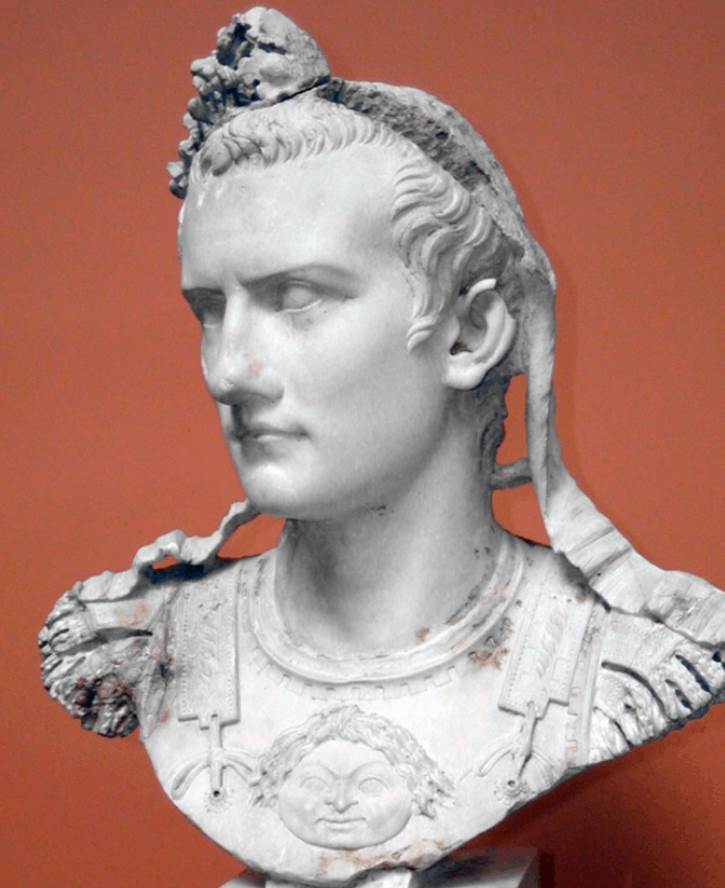
5. He was extremely popular when he became Emperor
With Tiberius dead and along with some powerful friends, he set things up to become emperor of Ancient Rome. After all, he was the son of the extremely popular general Germanicus and the great-grandson of Augustus himself!
He was appointed emperor and entered Rome on March 28 of the year 37 A.D. under the cheers of a massive crowd.
It was the first time he was given another nickname in his life as the crowd was chanting “our baby” and “our star,” full of contentment with the positive new wind that was about to blow through Ancient Rome.
If only they knew it would turn out to become a catastrophe…
6. The first 6 months of his reign were perfect
Caligula lived up to all the expectations during the first 6 months of his reign. he was extremely generous towards the military with whom he had a great connection since his childhood years.
Therefore, he granted bonuses to the Praetorian Guard, city troops, and the entire army outside Italy. He also reduced taxes for the people of Rome.
And most importantly, he organized lavish games and gladiatorial fights, and an estimated 160,000 animals were killed in popular hunts during the first 3 months of his reign.
Yes, he was everything the ordinary Roman at the time wanted from a leader!
7. He lost the plot after he was (possibly) poisoned
In October of the year 37 A.D. something happened that changed the course of his reign completely. he fell seriously ill and it’s been assumed that he was poisoned, which classified this event as an assassination attempt.
Many believe that this made him lose the plot completely and saw numerous people as his enemies, including his own family members.
As a result, Caligula had numerous senators and several members of his close family executed. These included his cousin and adopted son Tiberius Gemellus, his father-in-law Marcus Junius Silanus, and his brother-in-law Marcus Lepidus.
The remains of his mother and brothers on the other hand, who had died in exile, were exhumed and deposited in the Mausoleum of Augustus.
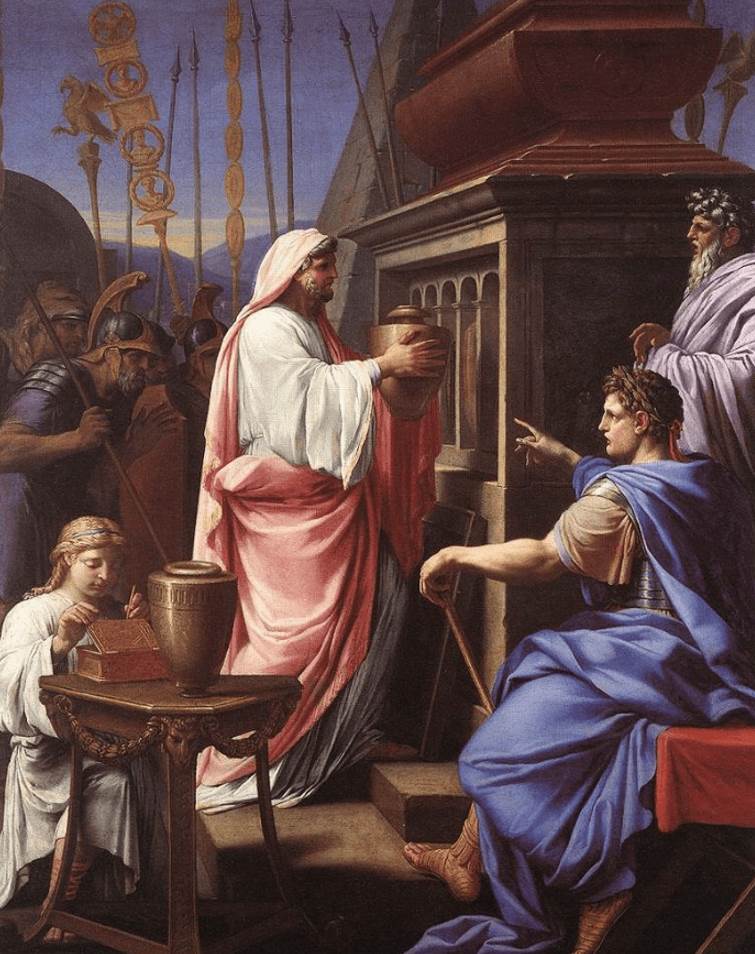
8. He blew a lot of money during the first two years as an Emperor
Caligula became self-indulgent and started spending a lot of money on projects for himself. he had 2 massive ships created which he used for his own pleasure.
These were some of the largest ships created in the ancient world, his own ancient yachts basically, fully furnished with marble floors and plumbing.
He also ordered the construction of a huge floating bridge so he could ride his horse over it and wear the breastplate of Alexander the Great.
He had this massive endeavor done just because somebody had once said that there’s “no more chance of Caligula becoming emperor than of riding a horse across the Bay of Baiae”
To keep the public happy, he also built two massive aqueducts named the “Aqua Claudia” and “Anio Novus,” and several stadiums and amphitheaters, one of which included the Vatican Obelisk which he had brought all the way from Egypt to Rome.
With all this spending in just a few years, things simply had to go wrong…
9. He believed he was a God and had a temple built in his honor
One of the weirdest facts about Caligula was that he actually believed he was a God. He often mentioned the words “Let there be one lord, one king.”
Religion became more prominent during his reign the more he really saw himself as a deity, something which wasn’t always appreciated. After all, he actually insisted that he was called “God” by other politicians.
At the Roman Forum, the busy central plaza of Ancient Rome and now an important historical site in the city, he had a temple built named the “Temple of Castor and Pollux,” and would often appear there to be praised as a God. He had the heads of various statues of Gods around the empire cut off and replaced with his own.
This false sense of divinity would eventually lead to his downfall.
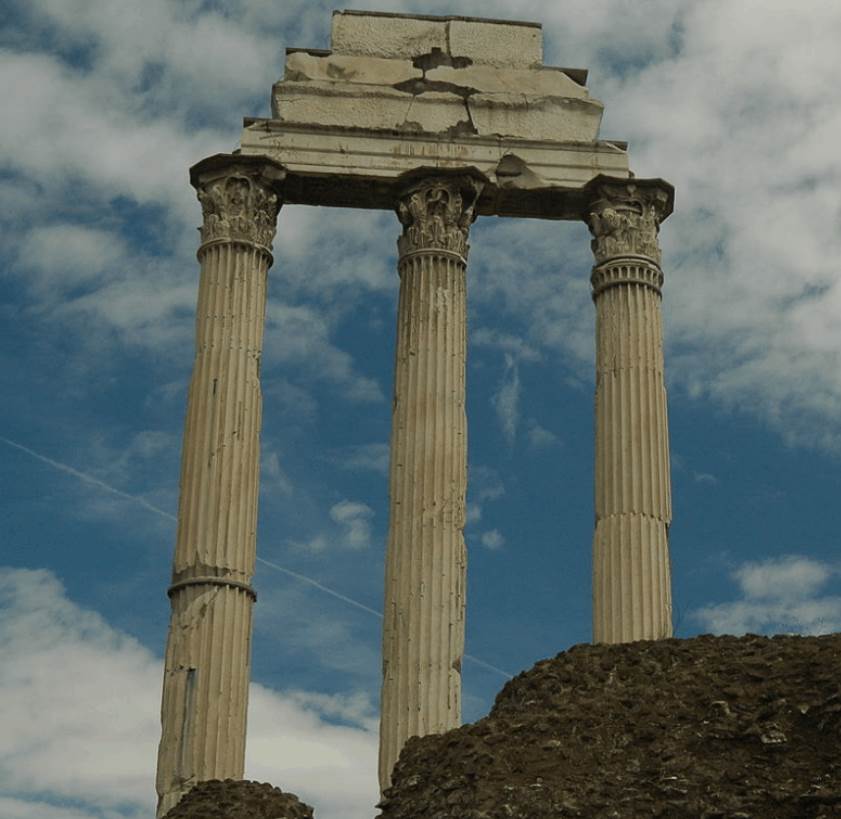
10. Going to games was pretty dangerous during Caligula’s reign
Another aspect of his reign was that his cruelty seemed to have worsened as he grew more arrogant. One almost unbelievable anecdote to emphasize this happened during one of the infamous Roman games.
Games were usually organized that animal hunts happened in the morning, executions during the lunch break, and gladiatorial fights in the afternoon.
One day, there appeared to have been no more prisoners to execute during the lunch break. A cranky Caligula, therefore, ordered an entire section of the crowd to be thrown into the arena with the wild animals so he could still enjoy a good old slaughtering while eating flamingo tongues. (Yes, Romans really ate that).
11. Caligula had a famous horse
Caligula loved his horse named Incitatus. He really thought highly of it. What he didn’t think highly of was the Roman Senate.
In a rather funny anecdote, he mocked the Senate by saying that he would make his horse a consul.
We can only assume he wasn’t that crazy, even though there was another story circulating that he appointed his horse as a priest.
None of these stories can be verified.
12. He died in a similar fashion as the man he was named after
All good things came to an end for Caligula. This included turning the palace into a brothel, indulging in incest with his sisters, having the army do illogical missions for his own amusement, and sleeping with other men’s wives just so he could brag about it.
His final mission was to travel to Egypt, settle down there, and have himself worshipped as the living Sun God.
The Senate couldn’t have that and numerous members conspired to have Caligula executed. It’s believed to have happened in the cryptoporticus, an underground corridor beneath the imperial palaces on Palatine Hill.
Caligula died on January 22 of the year 41 A.D. from numerous stab wounds inflicted by the conspirators.
One of the most fascinating facts about Caligula is that he died in the same way as the man he was named after, Gaius Julius Caesar.
A sad but not uncommon ending for a deranged emperor…
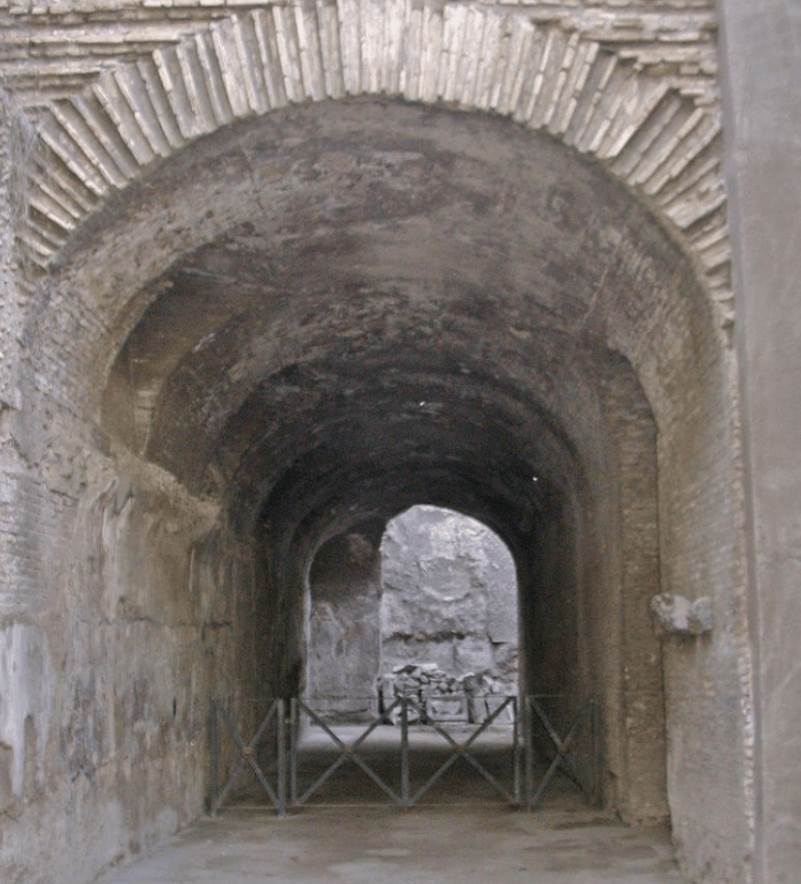
13. The Roman Empire nearly ended in the year 41 A.D.
While they were at it, the conspirators saw the opportunity to restore the Ancient Roman Republic. After tall, this way the Senate would have all the power again.
The main conspirator, named Chaerea, first tried to gain the support of the Roman Military, but this failed. Imperial support was growing so they killed Caligula’s wife, Caesonia, and killed their young daughter, Julia Drusilla.
The real target was Caligula’s uncle, Claudius, but they were unable to get to him in time and he was brought to safety, eventually becoming the new emperor following Caligula’s death.
The conspirators all ended up being executed…
14. This is how Caligula really looked like
Caligula is described to have had brown hair, brown eyes, and fair skin. This confirms the reconstruction of one of his painted busts from which particles of the colors used were discovered.
Another interesting fact is that Caligula couldn’t swim, even though it was part of the imperial training, which gives a ne dimension to the claim that he was “crazy both in body and mind.”
